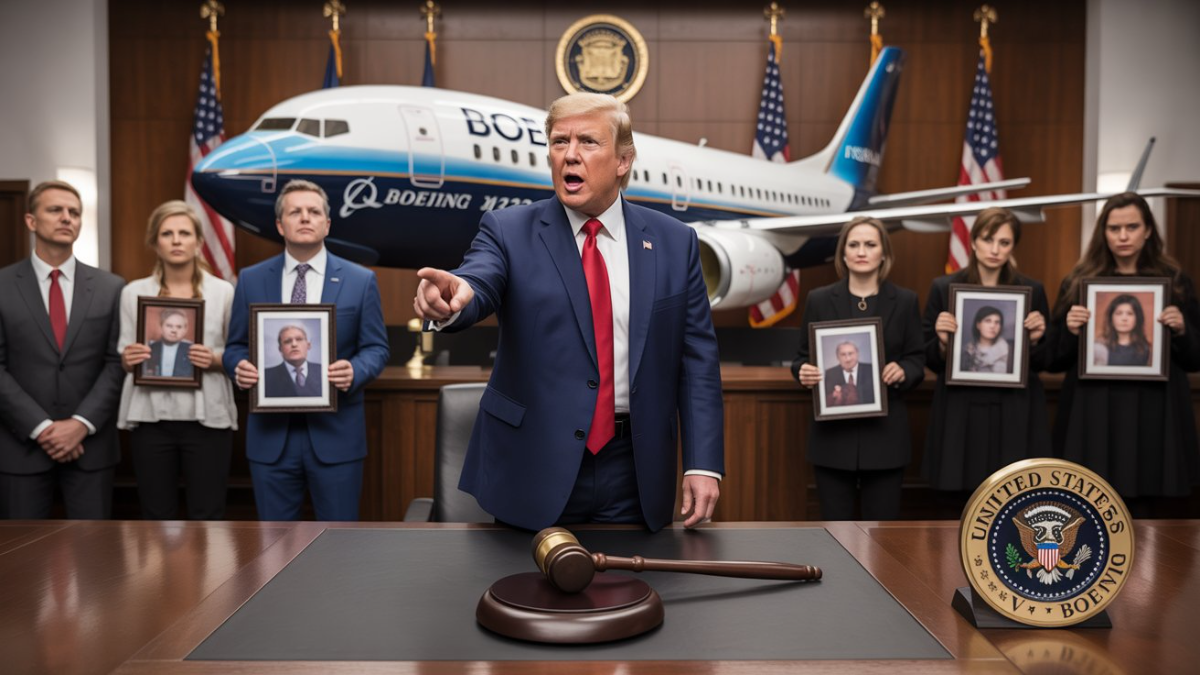
On July 18th, a federal judge in Texas scheduled what may be the final courtroom hearing in the high-profile case of United States v. The Boeing Company. After five years of legal back-and-forth, this chapter is likely closing in Boeing’s favor—leaving many to wonder if true corporate accountability will ever be achieved.
A History of Tragedy and Legal Complexity
The case traces back to the deadly crashes of Lion Air Flight 610 and Ethiopian Airlines Flight 302, which killed a total of 346 passengers. Investigations revealed a common culprit: Boeing’s Maneuvering Characteristics Augmentation System (MCAS), a software intended to enhance aircraft stability on the 737 MAX jets. However, the system had critical flaws Boeing allegedly did not fully disclose to the Federal Aviation Administration (FAA) or airlines.
In 2021, the Department of Justice (DOJ) officially charged Boeing with conspiracy to defraud the U.S. government, accusing the company of covering up safety issues related to the MCAS system.
Guilty Plea, Then a Twist
In July 2024, Boeing reached a plea agreement to avoid a criminal trial. The terms required Boeing to plead guilty, pay $2.5 billion in compensation to the federal government, airlines, and families of crash victims, and undergo three years of independent safety monitoring.
But in a dramatic turn, a federal judge rejected the plea bargain in December 2024, citing concerns over the fairness of the deal and Boeing’s ability to evade deeper scrutiny. As a result, a full criminal trial is now scheduled for June 2025.
What a Conviction Could Mean
If found guilty at trial, Boeing could face permanent federal oversight. This would be a major shift for the aviation giant, which has operated under relaxed regulatory frameworks since Congress repealed several strict industry laws back in 2005.
A conviction wouldn’t just hurt Boeing’s reputation—it could jeopardize government contracts, require sweeping changes to safety protocols, and expose senior executives to legal consequences.
Critics say the case exposes a deep flaw in how corporations are held accountable in America. “Boeing made calculated decisions that cost lives,” one aviation analyst commented. “The public wants more than fines—they want real change.”
Support and Controversy
While some lawmakers and victim advocacy groups continue to call for full corporate prosecution, Boeing has powerful allies in Washington and Wall Street. The company remains a major U.S. defense contractor, manufacturing everything from fighter jets to spacecraft.
Still, public trust in Boeing has taken a hit. Many Americans question whether a fine and a few years of compliance are sufficient punishment for what is seen as one of the most severe corporate safety failures in modern aviation history.
The July 18th hearing could set the tone for what’s to come. If the trial moves forward, it may become a landmark case in corporate criminal accountability. If the charges are dropped or a new deal is accepted, Boeing could walk away relatively unscathed, while critics and grieving families are left without closure.
As we wait for the court’s final decision, the world watches to see whether justice for 346 lives lost will finally be served—or once again delayed.